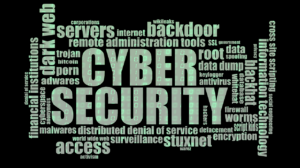Trading and dealing in cryptocurrencies is known to be one of the most secure ways to complete transactions and payments online. But the very decentralized nature of cryptocurrency also makes it an attractive lure to cybercriminals who are responding in force in 2020.
Crypto scams are not new, from fake websites to phishing attempts, fraudulent tweets, and imposter apps, the risks are well described. Now, traders and exchanges are dealing with a new spate of threats that have emerged amidst the ongoing novel coronavirus crisis.
As Bolster’s Q1 State of Phishing and Online Fraud Report for 2020 puts it:
“Bolster discovered multiple phishing websites peddling fake COVID-19 cryptocurrencies and crypto wallets that aim to siphon data for future phishing, targeted malware, or credential stealing. One COVID-19 cryptocurrency bills itself as ‘The World’s Fastest Spreading Crypto Currency’ and attempts to get visitors to download suspicious files off GitHub. Another site prompts visitors to register to find out more information about a COVID coin that ‘gains value as more people die and get infected.’”
The development of crypto-related COVID-19 scams is broadly in line with cybercriminal activity in other domains. Whether it is the deliberate peddling of misinformation or the rise of social engineering attacks, threat actors are responding to the pandemic with vigor and profiteering from panic.
In this threat landscape, securing your crypto investments properly is more important than ever. With that in mind, here are a few key ways to secure your bitcoin wallet and other currencies.
Security matters: 5 ways to secure your cryptocurrencies in 2020
1. Practice excellent digital hygiene
Following good digital hygiene practices is one of the very best ways to protect your devices and your currencies from attack. In fact, far too many breaches occur simply because of poor online practices.
For example, in 2020 some of the most common passwords include “qwerty” “123456” and “password”. And users often repeat passwords across multiple sites and accounts, or choose passwords that contain personally identifiable information, such as a birth date. These kinds of errors can lead to your accounts and currencies being compromised, and ripe for the picking from a threat actor’s perspective.
2. Use Virtual Private Network encryption
Using a VPN is an essential step in your cybersecurity protocols since these privacy solutions provide an additional layer of protection. VPNs create a private browsing network, and in the process, encrypt any data in transmission, making it next to impossible for any snoopers to find your activity or decipher any data.
Turn on your VPN whenever you’re trading, logging in to accounts, or using exchanges. You can also rely on your VPN when you absolutely have to use a public wifi network, which leads us to the next point.
3. Avoid public wifi networks like the plague
Open public wifi networks represent a significant security risk, whether you’re wheeling and dealing currencies or just casually browsing. Because of the open nature of public wifi networks, there is plenty of opportunity for threat actors to snoop. Furthermore, other connected devices can harbor malware or the network itself can be malicious.
As said above, if you have absolutely no choice but to use public wifi, make sure your VPN is turned on before you connect.
4. Enable multi-factor authentication across all your accounts
Using multi-factor or two-factor authentication is an easy way to double-down when it comes to account security. Despite repeated warnings as to its importance, multi-factor isn’t used as often as it should be. In fact, one survey from Microsoft showed that around 99 percent of all compromised accounts had no two-step verification in place.
5. Use wallets, not exchanges to store coins
Instead of relying on your exchange’s in-built wallet for storage, move large sums of coin out and into a secure wallet. Because exchanges deal in multiple transactions every day and harbor a lot of coins, they are an attractive target to hackers.
According to Cointelegraph, 2019 set a new exchange hack record with “12 major cryptocurrency exchange hacks in 2019. In total, over $292 million and over 500,000 pieces of customer data were stolen.” Instead of leaving your investments in exchanges, move them to another wallet. Consider cold wallet storage for any significant amounts for additional protection.
Although the current threat landscape poses significant risks to crypto traders and hobbyists, taking a few extra precautions can go a long way towards keeping your coins and your data safe.





